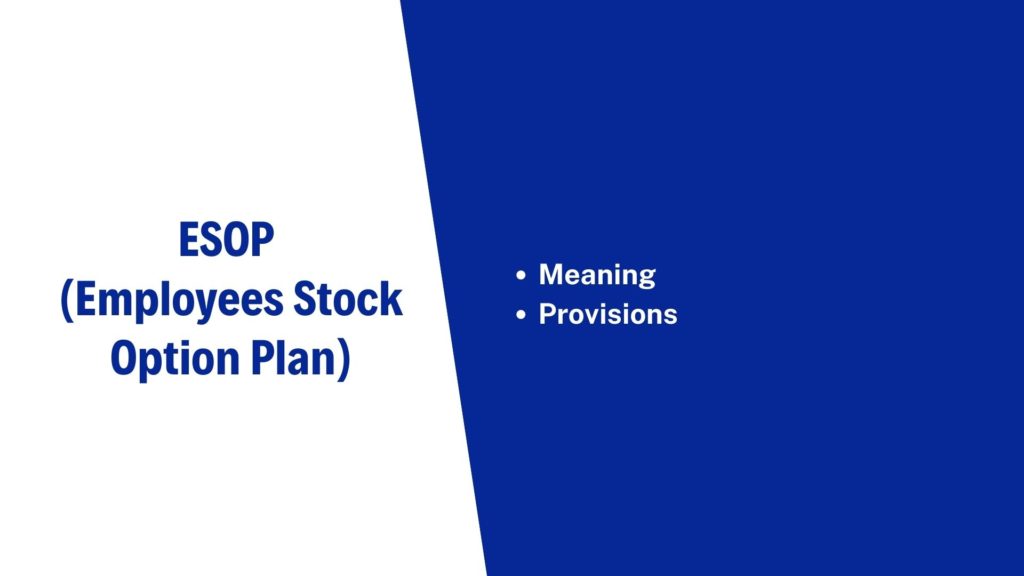ESOP Meaning (Employees Stock Option Plan) – Free Educational Articles on Scholarszilla
Table of Contents
ESOP Meaning

Meaning
Under this scheme, permanent employees, directors, or officers of the company or its Holding Company or Subsidiary company are offered the benefit or right to purchase the Equity Shares of the company at a future date at a pre-determined price.
ESOP encourages employees as they feel proud to be owners of the company for which they are working and company also benefits as it can retain good employees.
Provisions
Following are the provisions related to ESOP:
- A company may offer the shares directly to the employees or through an Employee Welfare Trust.
- The shares are offered at a price lesser than their market price.
- There is a minimum vesting period of one year.
Vesting Period: Period during which the employee uses his option to apply for shares that has been granted to him.
- Usually company will specify the lock-in period i.e. period during which employee cannot sell his shares. Lock-in period is minimum 1 year between grant of option and vesting.
- Shares issued under this scheme does not enjoy any dividend or voting rights till the employees buys the shares.
- Company has to get the approval of shareholders through special resolution to issue ESOP.
- Employee cannot transfer his option to any other person nor can he pledge or mortgage the shares issued under ESOP.
- Company has to set up a compensation committee to administer ESOP.Company has to fulfill the provisions of SEBI (Share Based Employee Benefits) Regulations, 2014.
Pledge: Give shares as a security for taking a loan.
Mortgage: Convey title to shares as security to a lender for taking a loan.
Bonus Shares
Bonus shares are usually announced by the company with a record date, the date which is considered for the bonus shares. All the investors holding the shares on the record date are eligible for bonus shares. After the announcement of the bonus but before the record date, the shares are referred to as cum-bonus. After the record date, when the bonus has been given effect, the shares become ex-bonus.


